The Spice Islands typically refers to the Molucca Archipelago in the modern Indonesian provinces of Maluku and North Maluku. Historically, this lucrative part of the (Dutch) East Indies also included other nearby islands, including Sulawesi (Celebes).
It is occasionally also referred to as the Zanzibar Archipelago including Pemba off East Africa.
Spice Island, Island of Spice, or Spice Isle may also refer to either
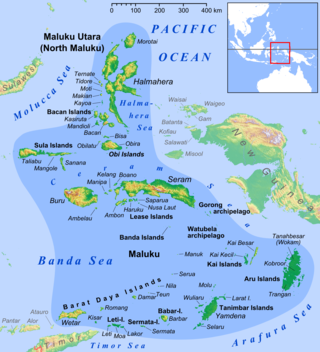
The Maluku Islands or the Moluccas are an archipelago in the eastern part of Indonesia. Tectonically they are located on the Halmahera Plate within the Molucca Sea Collision Zone. Geographically they are located east of Sulawesi, west of New Guinea, and north and east of Timor. Lying within Wallacea, the Moluccas have been considered as a geographical and cultural intersection of Asia and Oceania.
Maluku may refer to:

North Maluku is a province of Indonesia. It covers the northern part of the Maluku Islands, bordering the Pacific Ocean to the north, the Halmahera Sea to the east, the Molucca Sea to the west, and the Seram Sea to the south. It shares a maritime borders with North Sulawesi,, Southeast Sulawesi and Central Sulawesi to the west, Maluku to the south, Southwest Papua to the west, and Palau and the Philippines to the north. The provincial capital is Sofifi on the largest island of Halmahera, while the largest city is the island city of Ternate. The population of North Maluku was 1,038,087 in the 2010 census, making it one of the least-populous provinces in Indonesia, but by the 2020 Census the population had risen to 1,282,937, and the official estimate as at mid 2022 was 1,319,338.
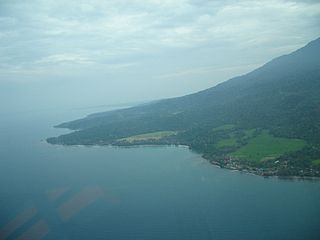
Halmahera, formerly known as Jilolo, Gilolo, or Jailolo, is the largest island in the Maluku Islands. It is part of the North Maluku province of Indonesia, and Sofifi, the capital of the province, is located on the west coast of the island.

The Barat Daya Islands are a group of islands in the Maluku province of Indonesia. The Indonesian phrase barat daya means 'south-west'.

Maritime Southeast Asia comprises the countries of Brunei, Indonesia, Malaysia, the Philippines, Singapore, and East Timor.
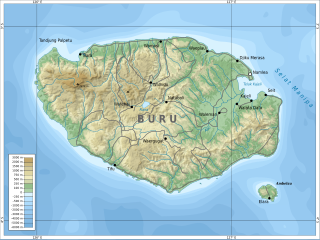
Buru is the third largest island within the Maluku Islands of Indonesia. It lies between the Banda Sea to the south and Seram Sea to the north, west of Ambon and Seram islands. The island belongs to Maluku province and includes the Buru and South Buru regencies. Their administrative centers, Namlea and Namrole, respectively, have ports and are the largest towns of the island, served by Namlea Airport and Namrole Airport respectively.
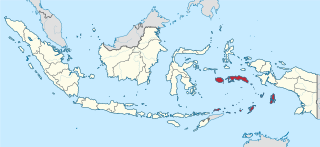
Maluku is a province of Indonesia. It comprises the central and southern regions of the Maluku Islands. The largest city and capital of Maluku province is Ambon on the small Ambon Island. It is directly adjacent to North Maluku, Southwest Papua, and West Papua in the north, Central Sulawesi, and Southeast Sulawesi in the west, Banda Sea, Australia, East Timor and East Nusa Tenggara in the south and Arafura Sea, Central Papua and South Papua in the east. The land area is 46,150.92 km2, and the total population of this province at the 2010 census was 1,533,506 people, rising to 1,848,923 at the 2020 census, the official estimate as at mid 2022 was 1,881,727. Maluku is located in Eastern Indonesia.

Tidore is a city, island, and archipelago in the Maluku Islands of eastern Indonesia, west of the larger island of Halmahera. Part of North Maluku Province, the city includes the island of Tidore together with a large part of Halmahera Island to its east. In the pre-colonial era, the Sultanate of Tidore was a major regional political and economic power, and a fierce rival of nearby Ternate, just to the north.

Alfur, Alfurs, Alfuros, Alfures, Aliforoes, Alifuru or Horaforas people is a broad term recorded at the time of the Portuguese seaborne empire to refer all the non-Muslim, non-Christian peoples living in inaccessible areas of the interior in the eastern portion of Maritime Southeast Asia, mainly from the Arafura Sea area.

A kora-kora or kora kora or coracora is a traditional canoe from the Maluku (Moluccas) Islands, Indonesia. They are naval boat for carrying men on raids for plunder or for slaves. In Maritime Southeast Asia, raiding for slaves was an honourable way of making a living, and the kora kora was needed for defence against raids as well as for forays. Large kora-kora is called juanga or joanga.

The Portuguese were the first Europeans to establish a colonial presence in the Indonesian Archipelago. Their quest to dominate the source of the spices that sustained the lucrative spice trade in the early 16th century, along with missionary efforts by Roman Catholic orders, saw the establishment of trading posts and forts, and left behind a Portuguese cultural element that remains in modern-day Indonesia.
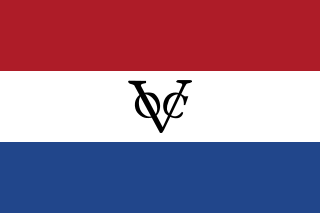
Company rule in the Dutch East Indies began when the Dutch East India Company appointed the first governor-general of the Dutch East Indies in 1610, and ended in 1800 when the bankrupt company was dissolved and its possessions were nationalized as the Dutch East Indies. By then it exerted territorial control over much of the archipelago, most notably on Java.
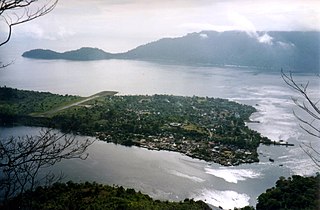
Banda Neira is an island in the Banda Islands, Indonesia. It is administered as part of the administrative Banda Islands District within the Central Maluku Regency in the province of Maluku. To the south is the main town of the same name, which is the largest town in the archipelago with around 7,000 inhabitants.

The Treaty of Zaragoza or Saragossa, also called the Capitulation of Zaragoza or Saragossa, was a peace treaty between Castile and Portugal, signed on 22 April 1529 by King John III of Portugal and the Habsburg emperor Charles V in the Aragonese city of Zaragoza. The treaty defined the areas of Castilian and Portuguese influence in Asia in order to resolve the "Moluccas issue", which had arisen because both kingdoms claimed the lucrative Spice Islands for themselves, asserting that they were within their area of influence as specified in 1494 by the Treaty of Tordesillas. The conflict began in 1520, when expeditions from both kingdoms reached the Pacific Ocean, because no agreed meridian of longitude had been established in the far east.
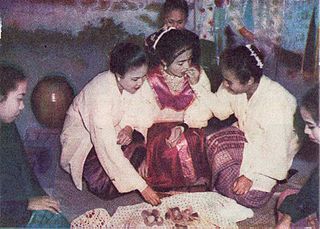
Moluccans are the Austronesian-speaking and Papuan-speaking ethnic groups indigenous to the Maluku Islands, Eastern Indonesia. The region was historically known as the Spice Islands, and today consists of two Indonesian provinces of Maluku and North Maluku. As such, "Moluccans" is used as a blanket term for the various ethnic and linguistic groups native to the islands.

The economic history of Indonesia is shaped by its geographic location, its natural resources, as well as its people that inhabited the archipelago that today formed the modern nation-state of the Republic of Indonesia. The foreign contact and international trade with foreign counterparts had also shaped and sealed the fate of Indonesian archipelago, as Indians, Chinese, Arabs, and eventually European traders reached the archipelago during the Age of Exploration and participated in the spice trade, war and conquest.

Indonesia and Portugal established diplomatic relations in 1950. Portuguese explorer and trader first reached Indonesian archipelago during the age of exploration in the 16th century in order to search for spices in the Indies.
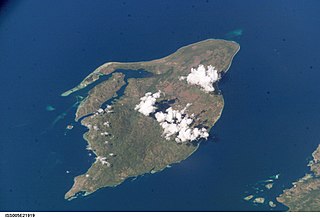
Boano Island is an island in West Seram Regency, Maluku Province, Indonesia. It is located off the northern coast of the Hoamoal Peninsula at the western end of Seram Island, across the Boano Strait. The inhabitants speak the Boano, Luhu, as well as Indonesian and Ambonese Malay.

Miniature meriam kecil is a type of very small cannon found on the Indonesian archipelago. Usually the length of these cannons is between 10–60 cm (3.9–23.6 in), with a caliber of 15 mm (0.59 in) or 16 mm (0.63 in), and has been around for hundreds of years. They are designed and decorated like a normal sized meriam kecil.